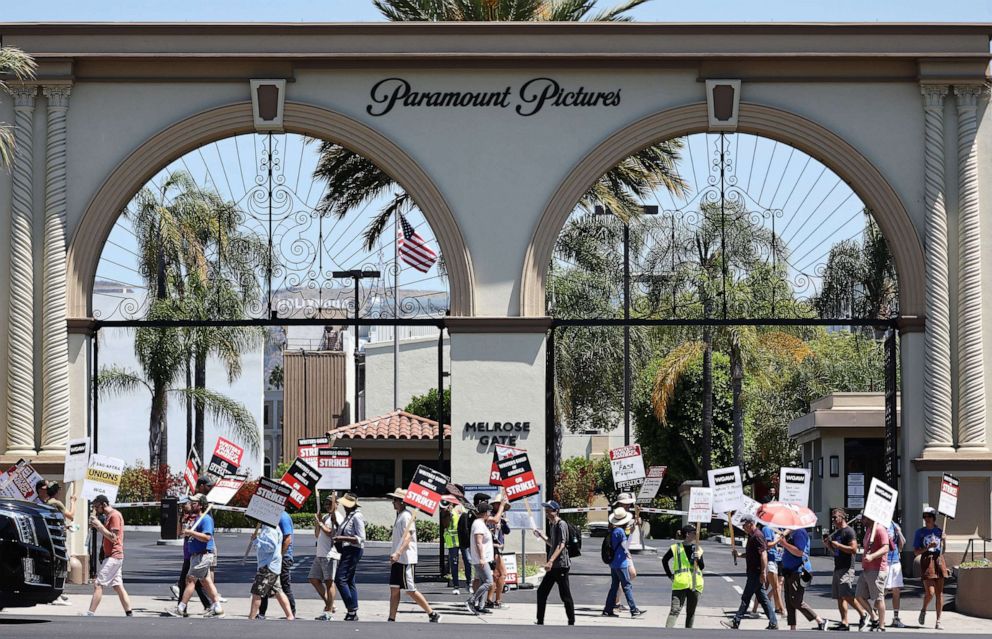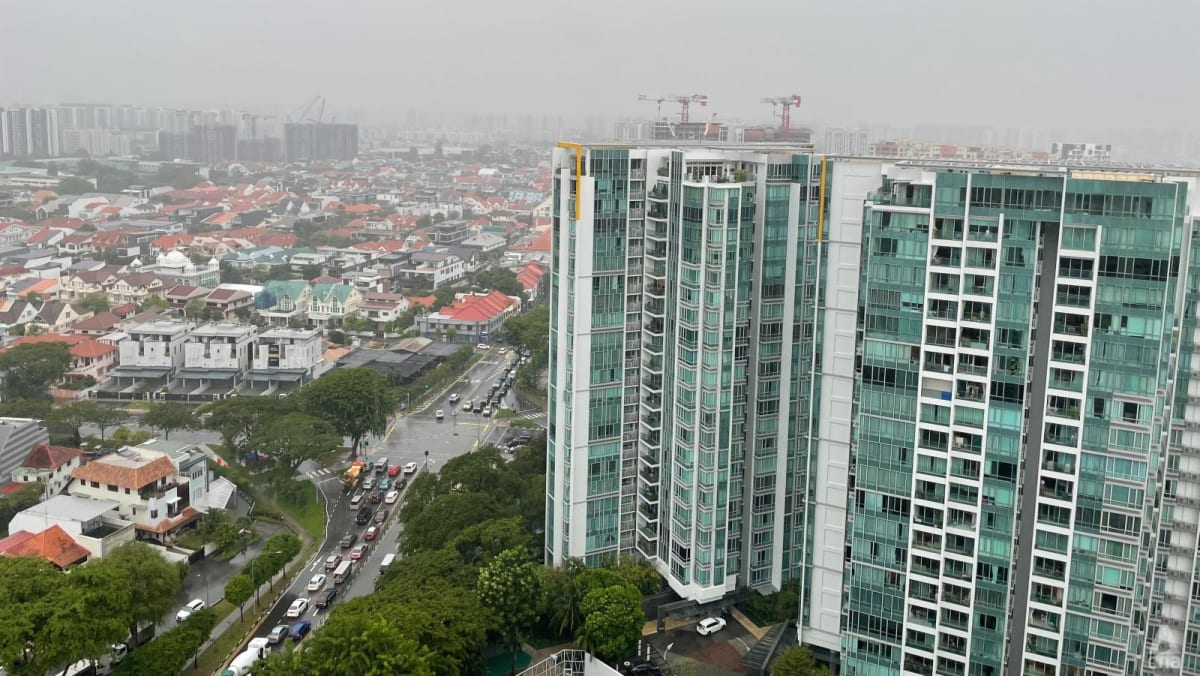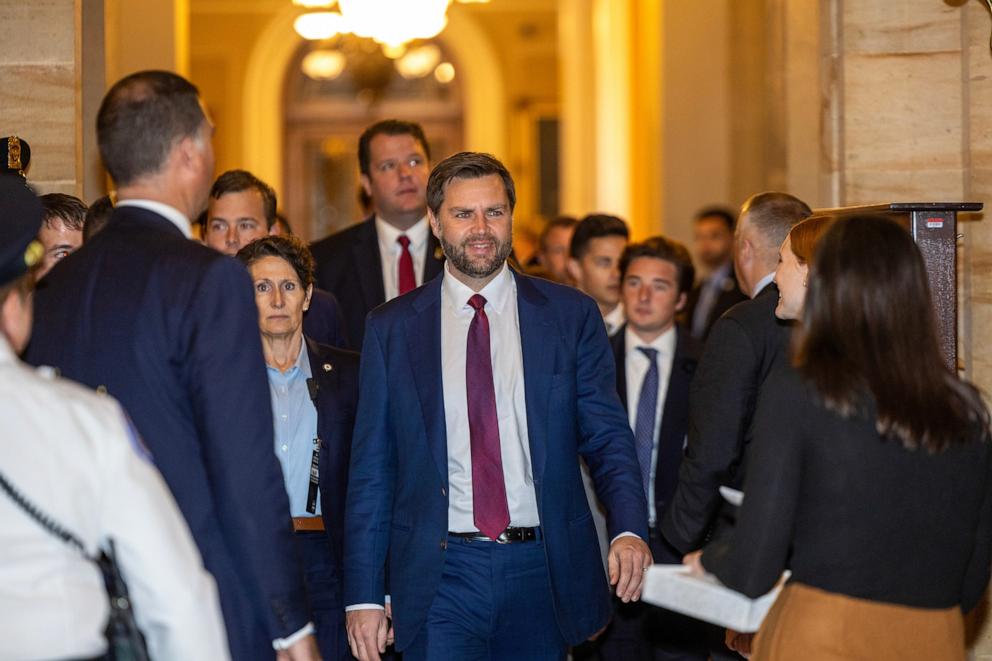SAG-AFTRA negotiating committee votes unanimously to recommend strike as Hollywood talks stall

The Screen Actors Guild-American Federation of Television and Radio Artists (SAG-AFTRA) negotiating committee has voted unanimously to recommend a strike in a move that could incapacitate Hollywood productions.
The major unions in Hollywood issued a joint statement Wednesday on their “unwavering support and solidarity” of SAG-AFTRA, including the Writers Guild of America, who have been on strike for more than two months with no sign of progress.
“Hollywood must be a place where every worker, on-screen and off, is treated according to the value their skills and talents command,” International Alliance of Theatrical Stage Employees, Teamsters, Hollywood Basic Crafts, the Directors Guild of America (DGA), the Writers Guild of America East and the Writers Guild of America West said in their statement.
The group added, “While the studios have collective worth of trillions of dollars, billions of viewers globally, and sky-high profits, this fight is not about actors against the studios, but rather about workers across all crafts and departments in the industry standing together to prevent mega-corporations from eroding the conditions we fought decades to achieve.”
The current SAG-AFTRA contract is expired at 11:59 p.m. PT Wednesday. The contract was originally going to expire on June 30 but was extended after SAG-AFTRA and the Alliance of Motion Picture and Television Producers (AMPTP) reached an agreement.
Union leaders and the AMPTP agreed on Tuesday to meet with federal mediators to possibly hammer out a deal before the current contract expires, according to SAG-AFTRA.
Striking WGA (Writers Guild of America) workers picket outside Paramount Studios, July 12, 2023, in Los Angeles.
Mario Tama/Getty Images
“We will not be distracted from negotiating in good faith to secure a fair and just deal by the expiration of our agreement,” SAG-AFTRA said in a statement. “We are committed to the negotiating process and will explore and exhaust every possible opportunity to make a deal, however, we are not confident that the employers have any intention of bargaining toward an agreement.”
Since a deal was not reached between the groups, a strike is now increasingly likely. In June, 98% of members agreed to authorize a strike if an agreement isn’t reached, SAG-AFTRA said.
“From the time negotiations began on June 7, the members of our Negotiating Committee and our staff team have spent many long days, weekends and holidays working to achieve a deal that protects you, the working actors and performers on whom this industry relies,” said SAG-AFTRA president and chief negotiator, Fran Drescher, in a statement issued early Thursday. “As you know, over the past decade, your compensation has been severely eroded by the rise of the streaming ecosystem. Furthermore, artificial intelligence poses an existential threat to creative professions, and all actors and performers deserve contract language that protects them from having their identity and talent exploited without consent and pay. Despite our team’s dedication to advocating on your behalf, the AMPTP has refused to acknowledge that enormous shifts in the industry and economy have had a detrimental impact on those who perform labor for the studios.”
A separate statement was issued early Thursday by the Alliance of Motion Picture and Television Producers following the failed negotiations.
“We are deeply disappointed that SAG-AFTRA has decided to walk away from negotiations. This is the Union’s choice, not ours. In doing so, it has dismissed our offer of historic pay and residual increases, substantially higher caps on pension and health contributions, audition protections, shortened series option periods, a groundbreaking AI proposal that protects actors’ digital likenesses, and more.,” said the AMPTP. “Rather than continuing to negotiate, SAG-AFTRA has put us on a course that will deepen the financial hardship for thousands who depend on the industry for their livelihoods. There are 160,000 members of SAG-AFTRA and over 11,000 members of the Writers Guild of America.”
The unending writers’ strike, which began in May, is costing California’s economy $30 million a day, according to Deadline.
Writers are demanding that studios pay them accordingly as shifting into streaming has changed the way shows are made and monetized.
In a pre-strike protest in front of Netflix offices on Wednesday, actors told ABC News they are trying to get by financially and contracts have not kept pace with inflation.
Their biggest concerns are streaming residuals, the impact of AI technology and making more money.
“I think most people don’t understand that most actors don’t make millions of dollars. A lot of us are struggling to eat and pay rent,” John Jared, a SAG-AFTRA member for three years, told ABC News.
Source: abc news















